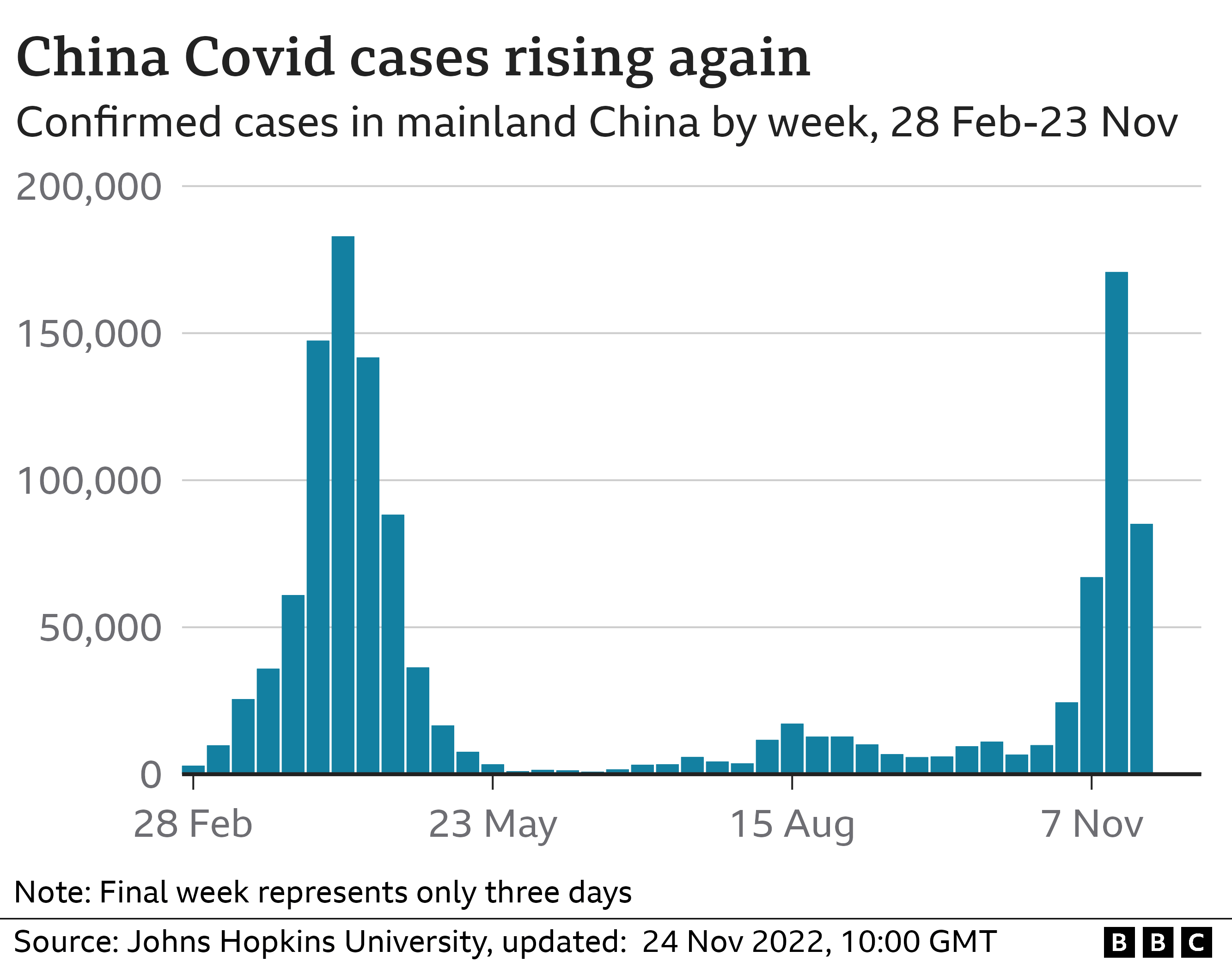
This article is more than
3 year old
Several major cities including the capital Beijing and southern trade hub Guangzhou are experiencing outbreaks.
Wednesday saw 31,527 cases recorded compared with an April peak of 28,000.
The numbers are still tiny for a country of 1.4 billion people and officially just over 5,200 have died since the pandemic began.
That equates to three Covid deaths in every million in China, compared with 3,000 per million in the US and 2,400 per million in the UK, although direct comparisons between countries are difficult.
While China's zero-Covid policy has clearly saved lives, it has also dealt a punishing blow to the economy and ordinary people's lives.
The country slightly relaxed some of those restrictions a few weeks ago.

It cut quarantine for close contacts from seven days in a state facility to five days and three days at home, and stopped recording secondary contacts which allowed many more people to avoid having to quarantine.
Officials have also sought to avoid enforcing blanket lockdowns of the kind endured by the largest city, Shanghai, earlier this year.
But faced with a renewed surge in cases in Beijing, as well as the first deaths from the virus in months, officials have already implemented some restrictions in several districts, with shops, schools and restaurants closed.
The central city of Zhengzhou is also to enforce an effective lockdown for 6 million residents from Friday, officials announced.
It follows violent protests at a vast industrial complex belonging to iPhone manufacturer Foxconn. The firm has apologised for a "technical error" in its payment systems.